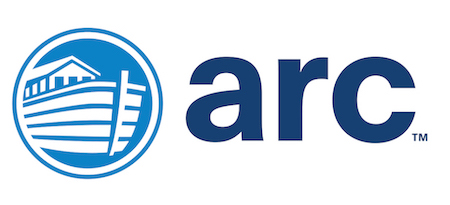
We are heartbroken for this mother who, like too many parents across our nation, has endured the loss of a loved one to the addiction crisis. Due to federal privacy laws applicable to all healthcare providers, we cannot confirm or deny this individual was ever in our care.
At ARC, our mission is rooted in the belief that everyone deserves a chance to recover and find their God-given destiny. From the beginning, we have been dedicated to transforming lives through a whole-person approach to treatment—addressing not only the medical aspects of addiction but also the emotional, psychological, and social challenges individuals face. Because of this, ARC has always been committed to using every tool available to help a person heal. We have been pioneers in integrating evidence-based practices and medically assisted treatment (MAT/MOUD) into our programs, including receiving training from Hazelden Betty-Ford in 2019 to fully integrate MAT/MOUD into both inpatient and outpatient programming.
ARC is accredited by the American Society of Addiction Medicine (ASAM) and the Commission on Accreditation of Rehabilitation Facilities (CARF). We employ a comprehensive medical team, including five physicians—two of whom are addiction specialists—and two psychiatrists, along with a robust group of general and psychiatric nurse practitioners. Our medical team uses MAT as part of a structured treatment plan that prioritizes each person’s unique needs, promotes stability, and works toward a long-term recovery goal. These evidence-based practices ensure MAT is delivered with careful oversight and in conjunction with therapies, skill-building, and resources to address co-occurring mental health issues and social reintegration.
We do not prioritize one treatment option over another and focus instead on what is best for each patient. ARC provides a full range of high-quality, industry-standard addiction treatment services, including MAT using buprenorphine (Suboxone), long-acting naltrexone (Vivitrol), and Lofexidine (Lucemyra) for acute opioid withdrawal symptoms. Beginning in November, ARC will also incorporate Brixadi, an innovative long-acting injectable buprenorphine. Patients are educated about all MAT options and empowered to choose the treatment pathway that aligns with their recovery goals.
While we do not directly provide or manage Vivitrol treatment, we ensure that patients for whom it may be appropriate are informed about it as an option. Patients interested in Vivitrol are referred to external providers for management. They are free to choose any qualified provider, and if they have no preference, we typically refer them to a trusted non-profit Federally Qualified Health Center. ARC does not receive any compensation for Vivitrol treatment or the medication itself.
It’s also worth noting that South Creek Drug, a 340b qualified pharmacy, is one of the pharmacies utilized by providers of Vivitrol. They work directly with these providers to dispense the medication at contracted rates, ensuring accessible and streamlined support for patients pursuing Vivitrol as part of their recovery plan.
For context, in the past 12 months, ARC has served 12,185 individuals with substance use disorder (SUD). Of these, 65.82% were diagnosed with opioid use disorder (OUD), 42.08% with primary or secondary OUD, and 48.35% with alcohol use disorder (AUD), with some patients overlapping categories. Among eligible patients, 24.50% were prescribed buprenorphine, 21.72% were prescribed naltrexone, and 31.6% chose not to use MAT.
Our pharmacy numbers may differ from other figures due to factors like generic medications and outpatient patients receiving medications from local pharmacies.
We are confident in our patient-first, evidence-based standard of care for addiction treatment and recovery.













![Foothills-Bundle] Foothills-Bundle](https://thelevisalazer.com/wp-content/uploads/2020/05/Foothills-Bundle-422x74.jpg)





What allegations? What is the story here?
I’m confused.
I found the story. A mother is suing ARC bc the administered a medication to her son, which would make his body not respond to drugs. So he ended up overdosing on fentanyl bc he took too much, and she thinks he took more bc his body didn’t feel the effects of the drug.